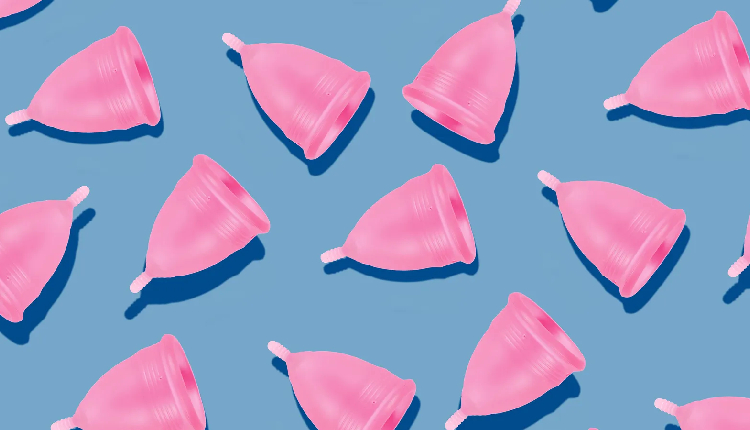Are you sick of having to change your period products, which are bulky and uncomfortable, every few hours to prevent leaks? Maybe you want to have less of an impact on the environment (or would like to save some of your hard-earned cash). The solution might just be menstrual (or period) cups. The use of period cups has grown in popularity as a replacement for disposable pads and tampons. Should you, however, use a menstrual cup? Is it safe? Are there any side effects? In this post, we’ll look at some menstrual cup usage-related facts that you may not be aware of.
What is a Menstrual Cup?
A menstrual cup is a reusable feminine hygiene item that women use during their menstrual cycle. In order to collect period fluids, you place a menstrual cup inside your vagina. It has a funnel-like shape and is made of rubber or silicone. Women now view these cups as a viable alternative to tampons because they have a higher blood retention capacity than other options. Depending on how much flow you have, a cup can be worn for up to 12 hours.
As long as they are used correctly, menstrual cups are typically not dangerous. Menstrual cups aren’t any riskier to use than tampons or other period supplies. As with tampons, there are risks associated with using menstrual cups, particularly when they aren’t used properly.
You may also like: Menstrual Hygiene Tips to Follow
Things you might not know about using menstrual cups:
It, like any other period product, can cause irritation
Using menstrual cups may irritate you for a variety of reasons, most of which are preventable. Uncomfortable situations can result from the cup being inserted improperly lubricated, being the incorrect size, or from improper cleaning of the cup in between uses. Mostly, this can be prevented by lubricating the exterior of the cup with a water-based product. For complete information, ensure that you thoroughly read the product’s instructions on the package.
You could also have an allergic reaction
Menstrual cups are no different from any other product in that they carry the risk of an allergic reaction. The fact that they are created of medical-grade silicone, however, means that unless you have a silicone allergy, they shouldn’t end up causing an allergic reaction in your vagina. Moreover, due to the materials that they use, various menstrual cup brands may be more effective for some women.
You could potentially harm your IUD
It is believed that using a menstrual cup after having an intrauterine device (IUD) inserted will lessen its effectiveness because the cup may tug on the string or remain undisturbed, which may result in the IUD ceasing to work. However, studies show that regardless of whether a person uses menstrual cups, an IUD expulsion happens naturally in about one in twenty cases. According to other studies, overusing tampons or pads can cause your IUD to be expelled, but using menstrual cups does not really significantly increase that risk.
Using menstrual cups could indeed lead to infection
Infection is a rare but serious side effect of using menstrual cups. Rather than being brought on by the cups themselves, infections are typically brought on by bacterial transmission from hands to cups. For instance, bacterial growth in the vagina can lead to the development of infections like yeast infections and vaginosis, which can alter pH levels. You should thoroughly wash your hands with lukewarm water and antibacterial soap before accessing the cup to avoid this. Besides this, if cups are not kept clean, they can spread disease. The cup should be cleaned with gentle liquid soap and warm water both before and after use.
TSS may occur when using menstrual cups
Toxic shock syndrome (TSS) is one of the most severe and potentially fatal bacterial infections brought on by Staphylococcus or Streptococcus bacteria, which are typically found on your nose, mouth, and skin. Menstrual cups are extremely uncommonly the culprit, but tampons are usually the common reason.
What are your experiences with using menstrual cups and would you recommend them to other women? Let us know!
We will be delighted to have your thoughts and feedback. Please write to us at [email protected]
Follow Life and Trendz on Instagram: https://www.instagram.com/lifeandtrendz/
Facebook: https://www.facebook.com/lifeandtrendz
Twitter: https://twitter.com/LifeandTrendz


Comments are closed.